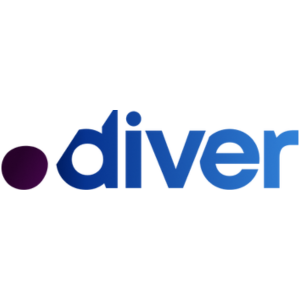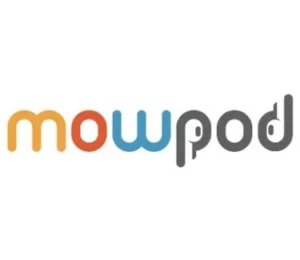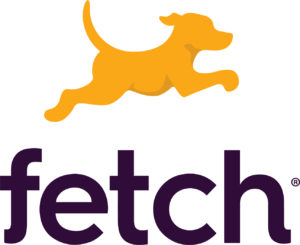Is harvesting email addresses from web traffic legal? — Adam Robinson // GetEmails
Adam Robinson
GetEmails

- Part 1How to get email addresses from web traffic
- Part 2 Is harvesting email addresses from web traffic legal? — Adam Robinson // GetEmails
- Part 3Email-Based Retargeting as a revenue channel — Adam Robinson // GetEmails
Show Notes
Quotes
-
“There is legal discussion and ethical discussion to have. The ethical one is a bit more complicated but the legal one is very black and white.” -Adam“In the United States, the CAN-SPAM Act of 2003 is opt-out email marketing. Period. It is not opt-in. So long as you have an opt-out link in your email, it is compliant with that regulation. There was a bit about email harvesting that was very opaque in the Act so, in 2015, they defined harvesting to be scraping off of website whose Terms of Service explicitly said that no data will ever be shared or sold.” -Adam“If the data will be shared or sold by the website, then it is not considered email harvesting. I would like to say that this is not legal in Canada and Europe. It is not GDPR compliant. Both of them are only opt-in email marketing.” -Adam“The California legislationas it stands has nothing to do with opt-in. The people who are in the know believe that there are some more GDPR-like national level thing that is going to hit in a couple of years but we are still so far away from that happening.” -Adam“From a legal perspective, you can probably get around grabbing people’s email addresses without them giving it to you by putting some terms in your privacy policy and terms and conditions saying that if you visit our website and if you accept our cookie agreement, we are going to tryto get your email address and try to market to you in the same way that if you visit our website, we are going to try and hit you with ads on Facebook. There is a comparison there to non-email but you know, advertising retargeting.” -Ben “Cold outreachhas nothing to do with CAN-SPAM. This will parlay into the ethics discussion later. So you can do cold outreach and it is legal. The problem with it is, the ISPs, Gmail etcetera are not going to let infinity emails come in from any of these sources because you are going to ruin their experience.” -Adam“You can do cold outreach, it is legal. These tools pop up because you can and there are even integrations with Gmail but after a year or so, Gmail will no longer just accept all the emails coming out of these tools. The tools, they throttle you because they don’t want you to blow yourself up and you’re not going to keep paying for the tool, so they don’t let you send a thousand emails a day.” -Adam“So from a legal perspective, grabbing the email addresses and using them, as long as you’re not scraping them off a website that expressly says, no you cannot take this information essentially keeps it legal.” -Ben “The practices of reaching out on a one-to-one basis are accepted and widely adopted in B2B but with B2C it is a little muddier.” -Ben “You are not supposed to scrape. That is not what we are doing. We are basically buying email addresses from data brokers more or less who have third-party opt-ins from websites that have privacy policies that say, they are going to sell these email addresses.” -Adam“Scraping is not great practice and can get you in a lot of trouble because there are spam traps all over the internet. The system is set up pretty well to not let you abuse it. If you hit a spam trap, you’re going to be screwed and all the work you have put in in your campaign and possibly building your domain reputation will be ruined overnight.” -Adam“If your stance is no company should ever sell my data, it’s mine especially if it is personal information then you will never be able to get your head around the ethical argument.” -Adam“I feel like the leg that you stand on is, how is it different thatyou come to my website and I send you an email compared to you coming to my website and I serve you a Facebook ad. But email just feels more personal, doesn’t it?” -Ben “For some reason, the inbox has remained a sacred place in people’s minds. In a way, it’s amazing because it’s a discussion. People will be talking about this product because the very nature of it is so controversial especially for social advertising and media.” -Adam“If I am sending an email out to a list of people and more people open it than my opt-in list, more people click-through than my opt-in list, fewer people unsubscribed, and fewer people complain, how can that possibly be that bad? How can you tell me that that person doesn’t want that email when it performs according to the data.” -Adam“If the email is performing the same way that an opt-in email is, the experience is no worse to the consumer than an opt-in email.” -Ben “I am on the fence here and I’ll admit it. The thing that sticks out in my head is you’re decrypting something that was encrypted. You are decrypting personally identifiable information and that to me seems to be the thing that is unethical, like it was encrypted for a reason.” -Ben “The spirit of encryption is not for it to be decrypted. But there exists a way to do it and deliver value to businesses and the only reason we figured it out is that we were trying to figure out for ourselves.” -Adam“The by-product of this thing that I just described, of a brand that does not want to touch the PII (Personally Identifiable Information) and still wants to email because there are some that are okay with that, the by-product is, they have all of the MD5 audience from their website so the whole re-targeting audience, they are just collecting inside of our system.” -Adam“You can take this MD5 list, drop it into Facebook, and make a custom audience and it is out of Facebook. You don’t have to keep paying Facebook to renew it. It is actually more expensive to buy advertising from Facebook if you use their website identification pixel and do a lookalike audience there than it is if you provide the same people without using their identity pixel.” -Adam“You can see why they would do that because they know it is a retargeting audience, they know it is more valuable so they know they can charge you more than if you just pump in some other type of list.” -Adam
- Part 1How to get email addresses from web traffic
- Part 2 Is harvesting email addresses from web traffic legal? — Adam Robinson // GetEmails
- Part 3Email-Based Retargeting as a revenue channel — Adam Robinson // GetEmails
Up Next:
-
Part 1How to get email addresses from web traffic
Today we're going to discuss the strategy, practice, and legality of collecting emails from web traffic. Joining us is Adam Robinson, the Founder of GetEmails, which is the world's first ever email-based retargeting software. In part 1 of our conversation, we are going to discuss how to get email addresses from your web traffic.
Play Podcast -
Part 2Is harvesting email addresses from web traffic legal? — Adam Robinson // GetEmails
Today we're going to discuss the strategy, practice, and legality of collecting emails from web traffic. Joining us is Adam Robinson, the Founder of GetEmails, which is the world's first ever email-based retargeting software. In part 2 of our conversation, we discuss the legality of harvesting email addresses from anonymous web traffic.
-
Part 3Email-Based Retargeting as a revenue channel — Adam Robinson // GetEmails
Today we're going to discuss the strategy, practice, and legality of collecting emails from web traffic. Joining us is Adam Robinson, the Founder of GetEmails, which is the world's first ever email-based retargeting software. In part 3 of our conversation, we are going to discuss the best practices to use email-based retargeting as a revenue generating channel.
Play Podcast










